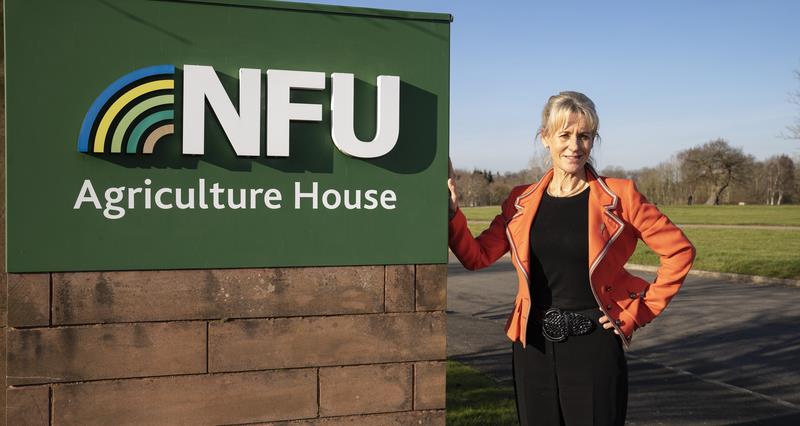The review of our policymaking is shaped by five representation principles, all of which aim to improve the connection between member needs and our policy work on your behalf:
- Policy making should engage and connect with more members so that the NFU’s decisions are well evidenced in our members’ needs, concerns and wants.
- That policy development is effectively communicated to, and discussed with, our members. This will reinforce the evidence for NFU decisions and, among the NFU’s membership, improve understanding of the NFU’s impact.
- Ensure that the NFU’s principal decision-makers (especially the boards) have the necessary skills and knowledge to address the full range of challenges facing each sector.
- Improve the efficiency and effectiveness of policymaking with fewer, better-evidenced places for decisions alongside a broader range of sounding boards.
- Promote the vitality and inclusivity of NFU representative bodies with new Farmer and Grower members involved.
"�ʼһ���is only as strong as its members"
NFU President Minette Batters
The multiple expectations and demands of farming, including that of balancing food and environmental care, motivated creation of a FFE Board (Farming, Food and Environment Board), replacing Policy Board.
The new FFE Board has a strong, purposeful role to ‘enable Britain’s farmers and growers to be more competitive, productive and sustainable, delivering a greater share of the UK and global food, fibre and renewable energy in ways that enhance farming’s environmental contribution’.
The FFE Board draws on representation from all commodities and regional environment leads to develop policies that place farming in the driving seat, setting a clear agenda rather than reacting to events. The board needs to be as interested in influencing decisions made in the food chain as it will the traditional ground for NFU of government policies and politics.
Members’ needs paramount
Understanding members’ needs now and anticipating future challenges is central to our policy work.
The review allows us to set up NFU Communities, which will aim to inform members about the NFU’s action on their behalf and allow members to have their say on issues of the moment. Learning from Covid-19, communities will be, by default, virtual, web-based places where members can join discussions, input views or learn about physical meetings at their leisure.
Changing commodity boards
The review also sees changes to national commodity boards to ensure each has the range of skills and expertise needed. This summer, national boards will agree a skills and knowledge matrix reflecting their sector’s needs. As of now, each of the four regions and NFU Cymru will send their regional chair to the national board, but regions can also appoint an additional delegate to reflect a different perspective or experience.
The review encourages regional boards to use the skills matrix to ensure the best-skilled delegates join the national commodity boards.
Of course, the review also makes changes to our regional policy teams: each of the four new regions has dedicated regional policy managers who, with regional environment advisers, will be able to field issues like planning policy and policing that are best influenced at county or regional level, rather than by our national team.
More on the NFU 2023 review





